Alcohol can slowly seep into every corner of a person’s life—damaging relationships, physical health, mental wellbeing, and the sense of self. But recovery is possible, and it starts with the right environment, the right tools, and the right team behind you.
At Southeastern Recovery Center, we offer more than just treatment. We offer transformation. Our holistic alcohol rehab program provides personalized, evidence-based, and whole-person care for people in need of healing. We’re proud to serve individuals across the state looking for compassionate, clinically sound alcohol rehab in North Carolina.

Alcohol Use Disorder (AUD) is more than “drinking too much”—it’s a chronic brain condition that affects decision-making, behavior, and physical health. According to the National Institute on Alcohol Abuse and Alcoholism (NIAAA), 29.5 million people in the United States aged 12 and older struggled with AUD in 2021.
In North Carolina, alcohol abuse has reached alarming levels. The North Carolina Department of Health and Human Services reports that more than 6,300 deaths in 2021 were linked to excessive alcohol use. Meanwhile, binge drinking continues to affect more than 18% of the state’s adult population. Even among adolescents, the problem is growing—about one in four North Carolina high schoolers admit to drinking alcohol in the past month.
These statistics speak to a wider issue: alcohol misuse has become normalized in many social and professional settings. But when it starts interfering with your daily life, it’s no longer “normal.” That’s where rehab for alcohol comes in.

Part of the reason that alcohol is so addictive is because its consumption is so normalized. From a day drinking the happy hour to birthday parties and nights at bars, it’s almost a social handicap not to drink. This is also why consideration for personal environment plays a big part in understanding and combating alcohol addiction.
When an individual drinks alcohol, their inhibitions are lowered and they feel a light buzz in their body while dopamine receptors fire in their brain. These bodily reactions can lead an individual to constantly seek out alcohol as a way to combat anxiety or to temporarily boost your mood.
This is when alcohol consumption can lead to a dependence on addiction to its effects. Additionally, as the body grows used to having alcohol present, your brain will alter how it produces chemicals to adjust for this constant presence. Once an individual has reached the stage, attempting to quit alcohol will result in withdrawal symptoms, which also make it harder for them to stay clean.
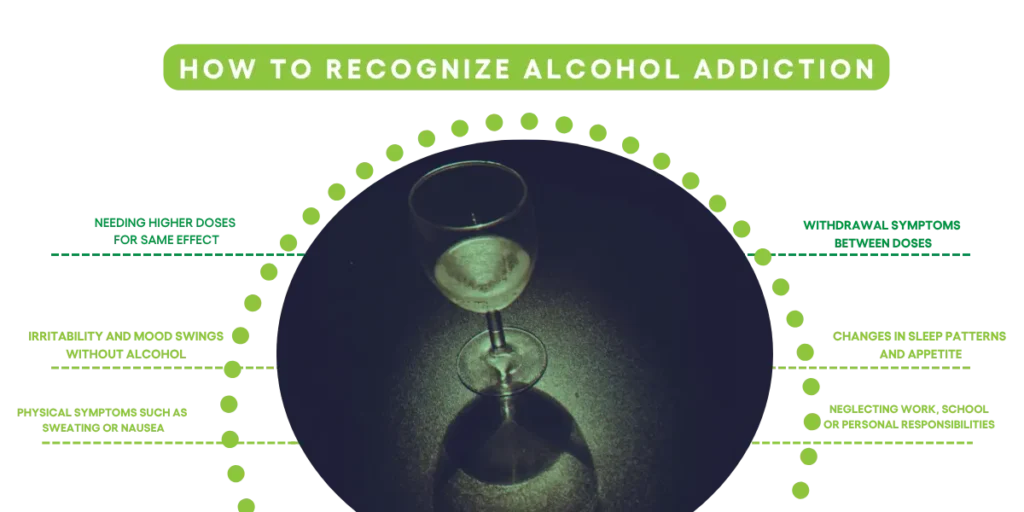
The fact that alcohol consumption is so normalized across the state of North Carolina means that some of the alarming statistics either go ignored or downplayed.
Let’s look at alcohol consumption on a local level:
Alcohol consumption in Charlotte and across North Carolina is so normalized that individuals may not believe they have a dependence or addiction until it’s too late.
If you want to look out for signs of alcohol addiction, here are some common tells:
It can be difficult for someone to try to rehab for alcohol at home if their environment isn’t safe and encouraging. This is why it’s advantageous to visit a rehab facility like Southeastern Recovery Center to ensure you’re receiving 24/7 support and medical guidance from individuals who are prioritizing your comfort and safety.
Alcohol addiction starts when an individual’s first drink. This can happen when they turn 21, when it’s almost seen as a social right of passage to go for a drink. Otherwise, it can happen while they’re underage, where even teenagers getting their hands on alcohol has become part of acceptably unacceptable behavior.
The more social opportunities an individual is presented with the drink, the more likely they are to grow hooked on the effects of alcohol in their body. They may find themselves consistently peer pressured into drinking more than they originally planned as social outings. Then, drinking more than planned may become their norm rather than a one off event.
The social environment in North Carolina and across the United States is so geared towards promoting alcohol consumption that an individual may not notice that they develop dependence when addicted to alcohol.
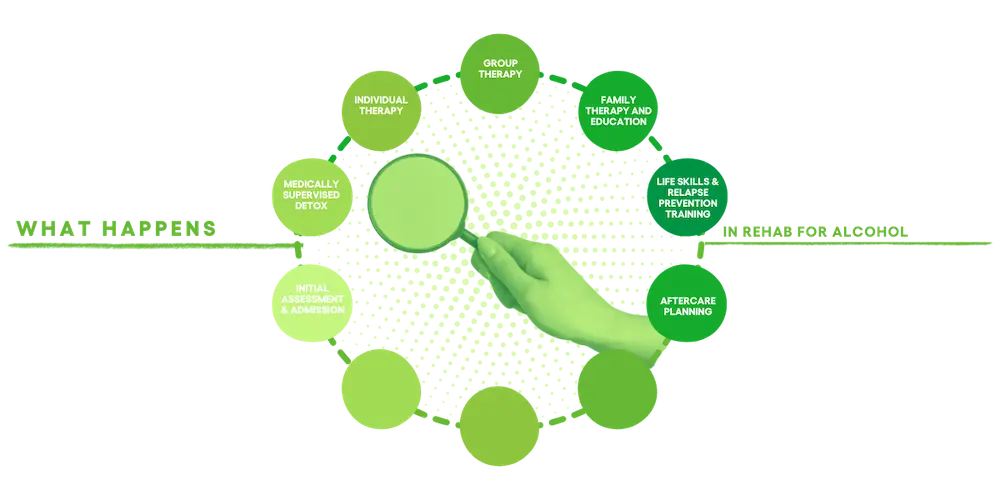
Southeastern Recovery Center provides a structured, supportive, and customized treatment process, serving all North Carolina residents from Greensboro, Raleigh, Charlotte, and more. As a rehab center in NC, we believe it’s our responsibility to meet your specific needs, regardless of specific location or other perceived limitations. Here’s what the process typically looks like:
Every client starts with a comprehensive intake assessment. We gather details about your drinking history, physical health, co-occurring mental health issues, and personal goals. This helps us develop a treatment plan tailored specifically to you.
For those who need it, detox is the first clinical step. Alcohol withdrawal can be dangerous, which is why we offer 24/7 monitoring and medication-assisted treatment to manage symptoms and keep you comfortable and safe.
One-on-one counseling provides a private space to explore the underlying emotional triggers and patterns that fuel alcohol use. Techniques like Cognitive Behavioral Therapy (CBT), Dialectical Behavior Therapy (DBT), and trauma-informed care help you process past experiences and build healthier coping skills.
Healing in community is powerful. Our group sessions offer support from peers who understand what you’re going through. These sessions cover relapse prevention, emotional regulation, communication skills, and shared life experiences.
Addiction affects more than just the individual. We offer family counseling to help repair relationships, set boundaries, and teach family members how to be supportive without enabling. Family involvement improves long-term recovery outcomes.
Recovery requires more than sobriety—it requires new habits and tools. We provide workshops on stress management, emotional regulation, time management, job readiness, and relapse prevention strategies.
Before discharge, we work with you to create a detailed aftercare plan. This might include outpatient therapy, 12-step or peer support groups, sober living, or participation in our alumni community. Recovery doesn’t stop when rehab ends—we’re here for the long haul.
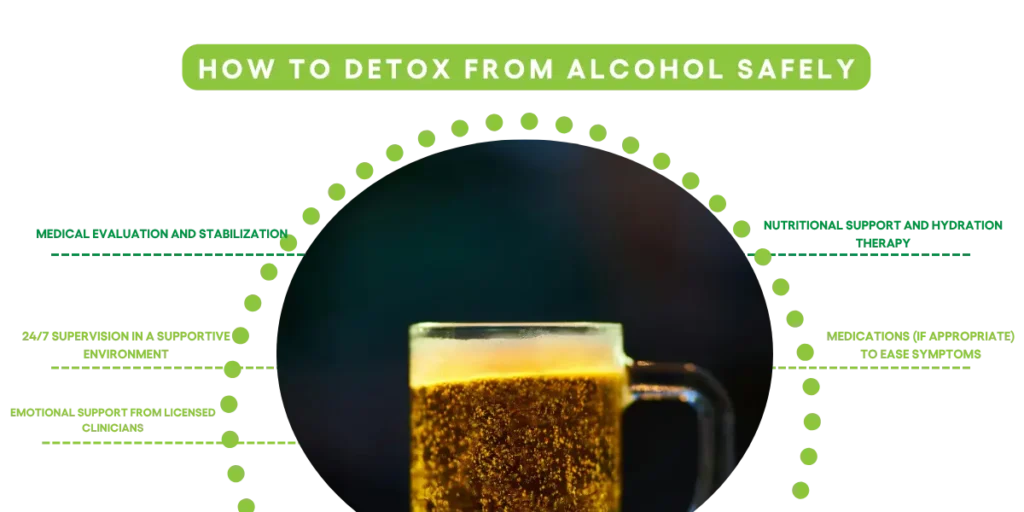
Alcohol withdrawal symptoms typically begin within six to 24 hours after your last consumption, and tend to last for 24 to 72 hours. In some cases it can last up to weeks. Symptoms include:
These symptoms tend to be at their worst from 24 to 72 hours after your last drink. This is also when the risk of a seizure is at its highest. This is why individuals are best off not trying to detox from alcohol at home, but rather seeking help from medical professionals.
At Southeastern Recovery Center, our patients receive 24/7 medical care while they experience the detox symptoms while attending rehab for alcohol. Medically-assisted detox is available as well. Our patients also receive:
Recovery doesn’t end when treatment does, maintaining sobriety requires ongoing support and structure.
Our relapse prevention planning helps clients in Charlotte and across North Carolina stay grounded through:
Relapse is not failure, it’s a signal that additional support may be needed. With the right guidance, long-term recovery from alcohol addiction is absolutely achievable.

Southeastern Recovery Center’s holistic alcohol rehab program is grounded in the belief that treating alcohol addiction isn’t just about stopping the behavior—it’s about healing the whole person. Many people drink to escape emotional pain, numb trauma, or manage stress. Our integrated approach addresses every layer of healing: physical, emotional, mental, and spiritual.
Here’s what our holistic care includes—and why it matters:
Each holistic service we offer is backed by research and integrated into our clinical programming to reinforce your recovery goals. Whether you’re rebuilding after trauma, managing anxiety, or learning to be present again, our holistic rehab approach supports healing on every level.
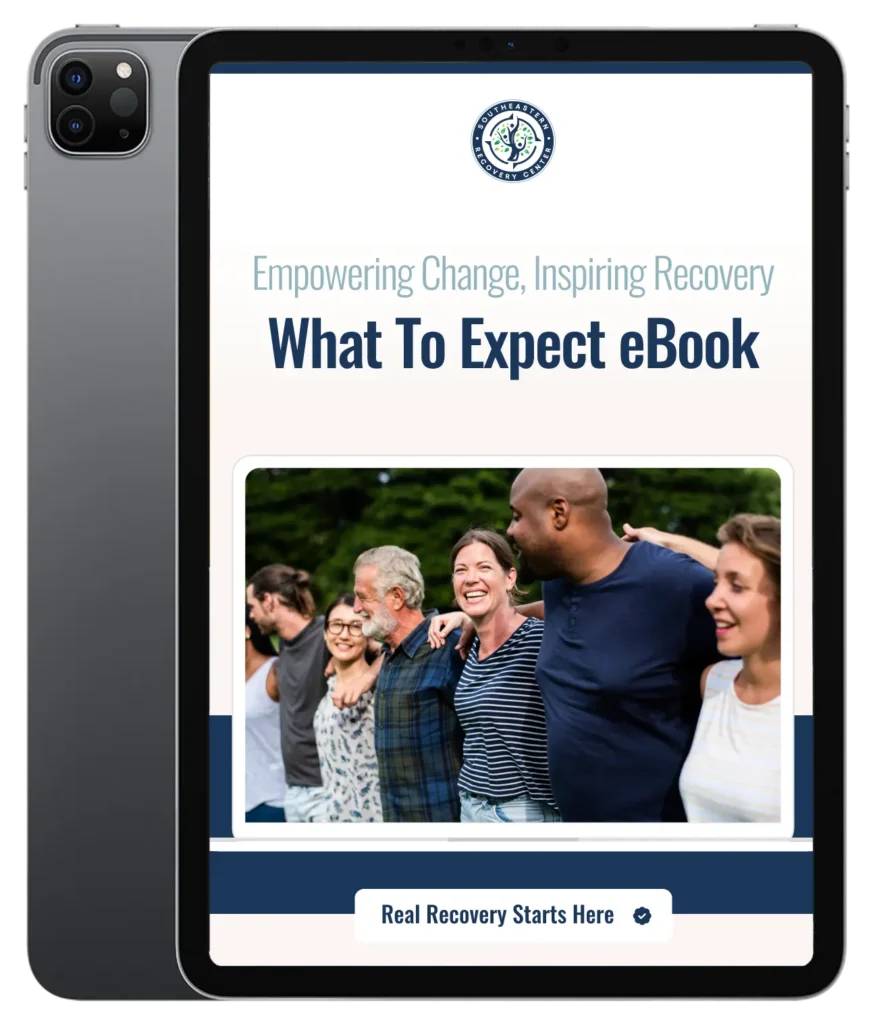

If you or a loved one are interested in learning more about what to expect when getting help for drug or alcohol addiction, please fill out our brief form and download the eBook. You can also give our admissions team a call & we would be happy to answer any questions you may have. Help is only a call away!
Finding the right treatment center for alcohol addiction in Charlotte, NC, or elsewhere in North Carolina, can feel overwhelming. Here are key factors to look for:
At Southeastern Recovery Center, we meet all of these criteria and more. Our focus on integrity, compassion, and clinical excellence has made us one of North Carolina’s most trusted recovery providers.
The connection between alcohol abuse and mental health disorders is well established. Many people drink to manage anxiety, depression, or trauma—sometimes without even realizing it. Unfortunately, alcohol only worsens these conditions over time.
Our rehab program is specifically designed to address co-occurring disorders, also known as dual diagnosis. We screen every client for underlying mental health issues and ensure that both addiction and mental health are treated together, not in isolation.
This approach allows us to help clients build better emotional regulation skills, identify their true triggers, and develop personalized strategies that reduce the risk of relapse.

If you or a loved are struggling with alcohol addiction, please reach out to our team today. Many treatment centers take a one-size-fits-all approach when treating addiction which isn't effective...At SERC, we understand that each client has their own story which led them to seeking help. We put emphasis on individualized care, tailoring treatment based on the specific needs of each client.

Reach Out For Help! ⮕

Create A Recovery Plan! ⮕
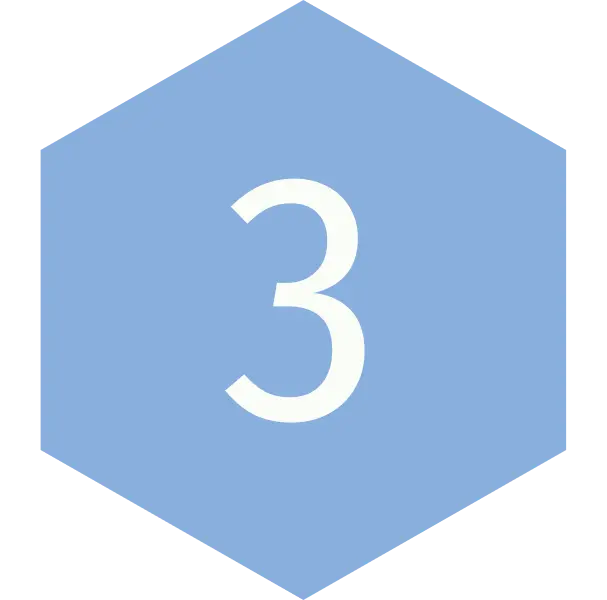
Begin The Healing Process! ⮕

If alcohol is interfering with your relationships, job, health, or sense of control—and especially if you’ve tried to stop and can’t—it’s time to seek help.
Yes. We offer medically supervised detox to ensure a safe and supported withdrawal process before therapy begins.
Holistic rehab goes beyond basic treatment. It incorporates physical, emotional, and spiritual care, including therapy, nutrition, mindfulness, movement, and creative outlets.
Yes. We are fully licensed by the state of North Carolina and follow rigorous standards for safety and effectiveness.
In many cases, yes. Our Intensive Outpatient Program (IOP) allows clients to continue work or school while attending therapy several times a week.
We’ll help you build an aftercare plan that may include therapy, 12-step or peer support groups, sober housing, and alumni resources.
Yes. We offer a safe, inclusive, and affirming environment for individuals of all identities and backgrounds.
Relapse doesn’t mean failure—it means more support is needed. We welcome clients who’ve tried before and are ready to try again with deeper tools and new strategies.
Yes. We accept most major insurance providers and offer free insurance verification when you contact our admissions team.
You don’t have to keep living under the weight of alcohol addiction. At Southeastern Recovery Center, we believe that recovery is possible for everyone—and that includes you. Whether this is your first time seeking help or you’ve tried before, we offer a fresh start with compassionate, evidence-based care.
Our alcohol rehab in North Carolina is rooted in the belief that healing requires more than willpower—it requires a community, a plan, and a personalized path forward. Let us help you take the first step today.